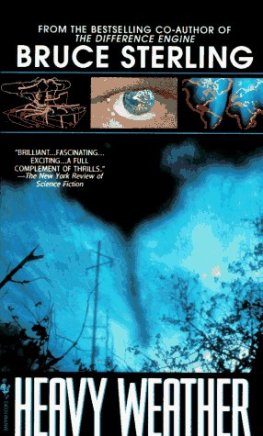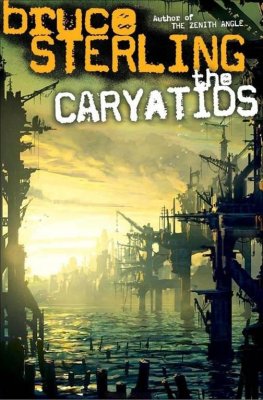Bruce Sterling - GURPS' LABOUR LOST
Here you can read online Bruce Sterling - GURPS' LABOUR LOST full text of the book (entire story) in english for free. Download pdf and epub, get meaning, cover and reviews about this ebook. genre: Science fiction. Description of the work, (preface) as well as reviews are available. Best literature library LitArk.com created for fans of good reading and offers a wide selection of genres:
Romance novel
Science fiction
Adventure
Detective
Science
History
Home and family
Prose
Art
Politics
Computer
Non-fiction
Religion
Business
Children
Humor
Choose a favorite category and find really read worthwhile books. Enjoy immersion in the world of imagination, feel the emotions of the characters or learn something new for yourself, make an fascinating discovery.

- Book:GURPS' LABOUR LOST
- Author:
- Genre:
- Rating:5 / 5
- Favourites:Add to favourites
- Your mark:
- 100
- 1
- 2
- 3
- 4
- 5
GURPS' LABOUR LOST: summary, description and annotation
We offer to read an annotation, description, summary or preface (depends on what the author of the book "GURPS' LABOUR LOST" wrote himself). If you haven't found the necessary information about the book — write in the comments, we will try to find it.
GURPS' LABOUR LOST — read online for free the complete book (whole text) full work
Below is the text of the book, divided by pages. System saving the place of the last page read, allows you to conveniently read the book "GURPS' LABOUR LOST" online for free, without having to search again every time where you left off. Put a bookmark, and you can go to the page where you finished reading at any time.
Font size:
Interval:
Bookmark:
Bruce Sterling
GURPS' LABOUR LOST
Some months ago, I wrote an article about the raid on SteveJackson Games, which appeared in my "Comment" column in theBritish science fiction monthly, INTERZONE (#44, Feb 1991).This updated version, specially re-written for dissemination byEFF, reflects the somewhat greater knowledge I've gained todate, in the course of research on an upcoming nonfiction book,THE HACKER CRACKDOWN: Law and Disorder on the ElectronicFrontier.
The bizarre events suffered by Mr. Jackson and his co-workers,in my own home town of Austin, Texas, were directly responsiblefor my decision to put science fiction aside and to tackle thepurportedly real world of computer crime and electronicfree-expression.
The national crackdown on computer hackers in 1990 was thelargest and best-coordinated attack on computer mischief inAmerican history. There was Arizona's "Operation Sundevil,"the sweeping May 8 nationwide raid against outlaw bulletinboards. The BellSouth E911 case (of which the Jackson raid wasa small and particularly egregious part) was coordinated out ofChicago. The New York State Police were also very active in1990.
All this vigorous law enforcement activity meant very little tothe narrow and intensely clannish world of science fiction.All we knew -- and this misperception persisted, uncorrected,for months -- was that Mr. Jackson had been raided because ofhis intention to publish a gaming book about "cyberpunk"science fiction. The Jackson raid received extensive coveragein science fiction news magazines (yes, we have these) andbecame notorious in the world of SF as "the Cyberpunk Bust."My INTERZONE article attempted to make the Jackson caseintelligible to the British SF audience.
What possible reason could lead an American federal lawenforcement agency to raid the headquarters of a science-fictiongaming company? Why did armed teams of city police, corporatesecurity men, and federal agents roust two Texancomputer-hackers from their beds at dawn, and then deliberatelyconfiscate thousands of dollars' worth of computer equipment,including the hackers' common household telephones? Why was anunpublished book called G.U.R.P.S. Cyberpunk seized by the USSecret Service and declared "a manual for computer crime?"These weird events were not parodies or fantasies; no, this wasreal.
The first order of business in untangling this bizarre drama isto understand the players -- who come in entire teams.
Dramatis Personae
PLAYER ONE: The Law Enforcement Agencies.
America's defense against the threat of computer crime is aconfusing hodgepodge of state, municipal, and federal agencies.Ranked first, by size and power, are the Central IntelligenceAgency (CIA), the National Security Agency (NSA), and theFederal Bureau of Investigation (FBI), large, potent andsecretive organizations who, luckily, play almost no role in theJackson story.
The second rank of such agencies include the Internal RevenueService (IRS), the National Aeronatics and Space Administration(NASA), the Justice Department, the Department of Labor, andvarious branches of the defense establishment, especially theAir Force Office of Special Investigations (AFOSI). Premieramong these groups, however, is the highly-motivated US SecretService (USSS), best-known to Britons as the suited,mirrorshades-toting, heavily-armed bodyguards of the Presidentof the United States.
Guarding high-ranking federal officials and foreign dignitariesis a hazardous, challenging and eminently necessary task, whichhas won USSS a high public profile. But Abraham Lincoln createdthis oldest of federal law enforcement agencies in order to foilcounterfeiting. Due to the historical tribulations of theTreasury Department (of which USSS is a part), the SecretService also guards historical documents, analyzes forgeries,combats wire fraud, and battles "computer fraud and abuse."These may seem unrelated assignments, but the Secret Service isfiercely aware of its duties. It is also jealous of itsbureaucratic turf, especially in computer-crime, where itformally shares jurisdiction with its traditional rival, thejohnny-come-lately FBI.
As the use of plastic money has spread, and theirlong-established role as protectors of the currency has faded inimportance, the Secret Service has moved aggressively into therealm of electronic crime. Unlike the lordly NSA, CIA, and FBI,which generally can't be bothered with domestic computermischief, the Secret Service is noted for its street-levelenthusiasm.
The third-rank of law enforcement are the local "dedicatedcomputer crime units." There are very few such groups,pitifully undermanned. They struggle hard for their funding andthe vital light of publicity. It's difficult to makewhite-collar computer crimes seem pressing, to an Americanpublic that lives in terror of armed and violent street-crime.
These local groups are small -- often, one or two officers,computer hobbyists, who have drifted into electroniccrimebusting because they alone are game to devote time andeffort to bringing law to the electronic frontier. California'sSilicon Valley has three computer-crime units. There areothers in Florida, Illinois, Ohio, Maryland, Texas, Colorado,and a formerly very active one in Arizona -- all told, though,perhaps only fifty people nationwide.
The locals do have one great advantage, though. They all knowone another. Though scattered across the country, they arelinked by both public-sector and private-sector professionalsocieties, and have a commendable subcultural esprit-de-corps.And in the well-manned Secret Service, they have willingnational-level assistance.
PLAYER TWO: The Telephone Companies.
In the early 80s, after years of bitter federal court battle,America's telephone monopoly was pulverized. "Ma Bell," thenational phone company, became AT&T, AT&T Industries, and theregional "Baby Bells," all purportedly independent companies,who compete with new communications companies and otherlong-distance providers. As a class, however, they are allsorely harassed by fraudsters, phone phreaks, and computerhackers, and they all maintain computer-security experts. In alot of cases these "corporate security divisions" consist ofjust one or two guys, who drifted into the work from backgroundsin traditional security or law enforcement. But, linked byspecialized security trade journals and private sector tradegroups, they all know one another.
PLAYER THREE: The Computer Hackers.
The American "hacker" elite consists of about a hundred people,who all know one another. These are the people who know enoughabout computer intrusion to baffle corporate security and alarmpolice (and who, furthermore, are willing to put their intrusionskills into actual practice). The somewhat oldersubculture of "phone-phreaking," once native only to the phonesystem, has blended into hackerdom as phones have become digitaland computers have been netted-together by telephones. "Phonephreaks," always tarred with the stigma of rip-off artists, arenowadays increasingly hacking PBX systems and cellular phones.These practices, unlike computer-intrusion, offer direct andeasy profit to fraudsters.
There are legions of minor "hackers," such as the "kodez kidz,"who purloin telephone access codes to make free (i.e., stolen)phone calls. Code theft can be done with home computers, andalmost looks like real "hacking," though "kodez kidz" areregarded with lordly contempt by the elite. "Warez d00dz," whocopy and pirate computer games and software, are a thrivingsubspecies of "hacker," but they played no real role in thecrackdown of 1990 or the Jackson case. As for the dire minoritywho create computer viruses, the less said the better.
The princes of hackerdom skate the phone-lines, and computernetworks, as a lifestyle. They hang out in loose,modem-connected gangs like the "Legion of Doom" and the "Mastersof Destruction." The craft of hacking is taught through"bulletin board systems," personal computers that carryelectronic mail and can be accessed by phone. Hacker bulletinboards generally sport grim, scary, sci-fi heavy metal nameslike BLACK ICE -- PRIVATE or SPEED DEMON ELITE. Hackersthemselves often adopt romantic and highly suspicious tough-guymonickers like "Necron 99," "Prime Suspect," "Erik Bloodaxe,""Malefactor" and "Phase Jitter." This can be seen as a kind ofcyberpunk folk-poetry -- after all, baseball players also havecolorful nicknames. But so do the Mafia and the MedellinCartel.
Font size:
Interval:
Bookmark:
Similar books «GURPS' LABOUR LOST»
Look at similar books to GURPS' LABOUR LOST. We have selected literature similar in name and meaning in the hope of providing readers with more options to find new, interesting, not yet read works.
Discussion, reviews of the book GURPS' LABOUR LOST and just readers' own opinions. Leave your comments, write what you think about the work, its meaning or the main characters. Specify what exactly you liked and what you didn't like, and why you think so.



